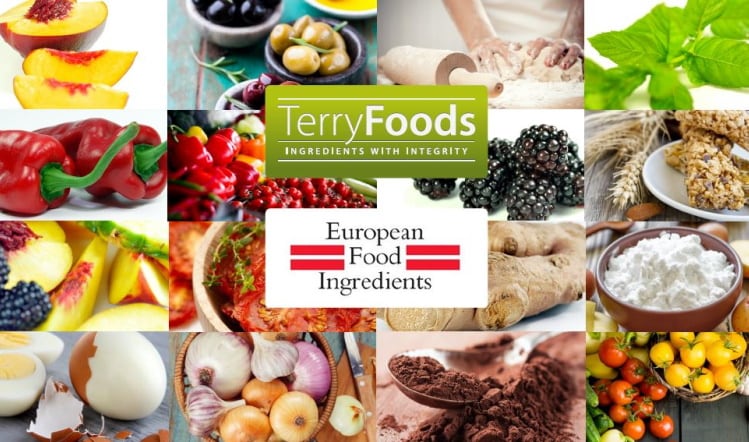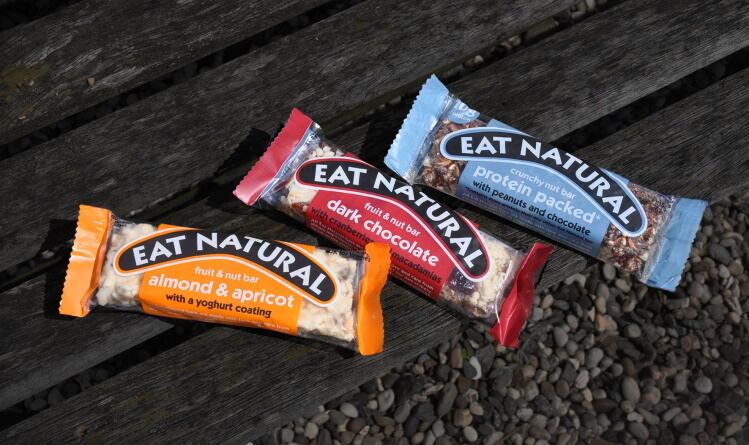The North Staffordshire-based food ingredients trading company announced it had acquired EFI for an undisclosed sum.
Gardiner told Food Manufacture that EFI, who have been long standing partners with Terry Foods, had approached him to acquire the business late last year.
“Before Christmas, the MD decided that she wanted to retire and called me and asked me if we wanted to acquire the business from them,” he explained. “It came completely out of the blue, but we knew her business and it fits very well into what we do. That was really the rationale behind it all.”
Acquisitions
Part of Terry Foods’ strategy has been to grow by acquiring similar longstanding businesses whose owners are looking to retire. That way, Gardiner and his team can continue their legacy and bring in years of experience under the Terry Foods belt.
“Obviously it helps us to expand our business to companies that we work with and helps us to look to different ingredients we aren’t supplying at the moment,” he added.
The acquisition of EFI followed a tough year for Terry Foods, due to the COVID-19 pandemic. The business faced one of its worst months on record in May 2020 and Gardiner was faced with a tough decision on how to steer into 2021.
“We had to make some major decisions on what we were going to do – whether we were going to just cut staff or if we were going to go for growth,” he said. “It was a real risk going for growth, but that’s what I decided to do and we have gone from strength to strength in a short space of time.
COVID challenge
“One of our biggest challenges was the way the business was set up – half was with food manufacturing and half was with hospitality. Obviously hospitality died a death last year, but we found that working with our manufacturers, that part of the industry had doubled in size – more people eating from home.
“We were able to work tightly with our manufacturers and I see that continuing for at least the next three-to-four years. We’re guessing things will start getting back to normal at some stage, but we don’t quite know when and when it does are we sure the hospitality industry will get back to where it was?”
One area that Terry Foods has not had to worry about was the impact of Brexit. According to Gardiner, there had been minimal challenges at his end. However, he feared EU suppliers were unprepared for the next stage of the Brexit process, when sanitary and phytosanitary customs controls kick in from 1 April for plant and animal products. Companies importing from the EU into the UK will need health certificates and import paperwork for the first time in decades.
Problem in Europe
“The biggest problem we’ve got is Europe hasn’t realised that the amount of work that they’ve got to do to be able to supply into the UK,” Gardiner mused. “I think they [businesses] might have been thinking ‘well, the UK’s left the EU, but we’ll just continue to do the same kind of business [as before]’, not realising the red tape they have to balance through.
“That’s taking a lot longer than is should do, because normally you’re looking at about a week, two weeks to get [ingredients] delivered into the UK, where now you’re looking at four-to-six weeks. The good thing about Terry Foods is that we’re a global company – if I can’t buy the ingredients from Europe, I can source them from other countries.”
Potential Brexit and COVID challenges haven’t stunted Terry Foods’ growth plans – Gardiner already has two further acquisitions he’s working on in the background.
“For now we’re working on the acquisition that we’ve got and making sure it works properly and concentrating on growing and increasing our core business,” he concluded. “We’ll also be looking at more direct imports from other countries – it’s where I see the growth over the next five years.”





